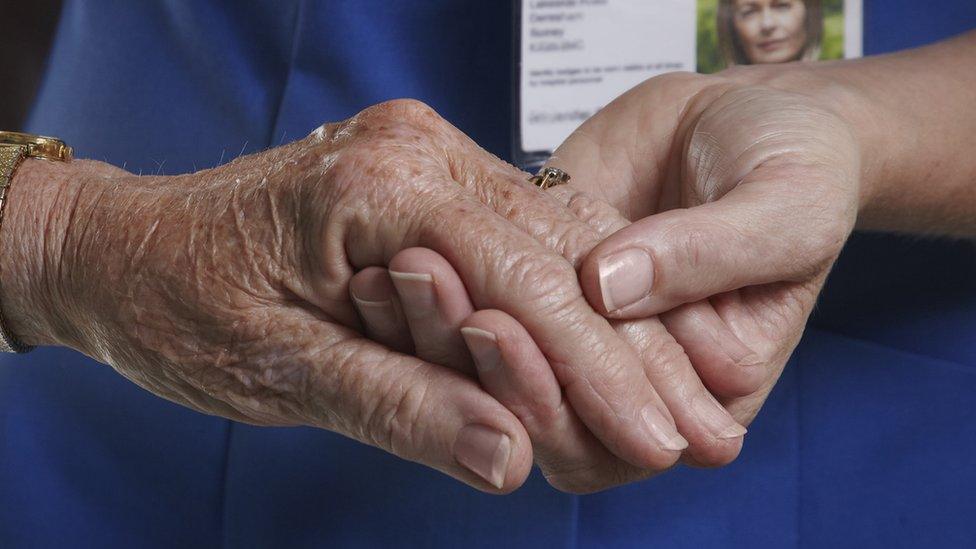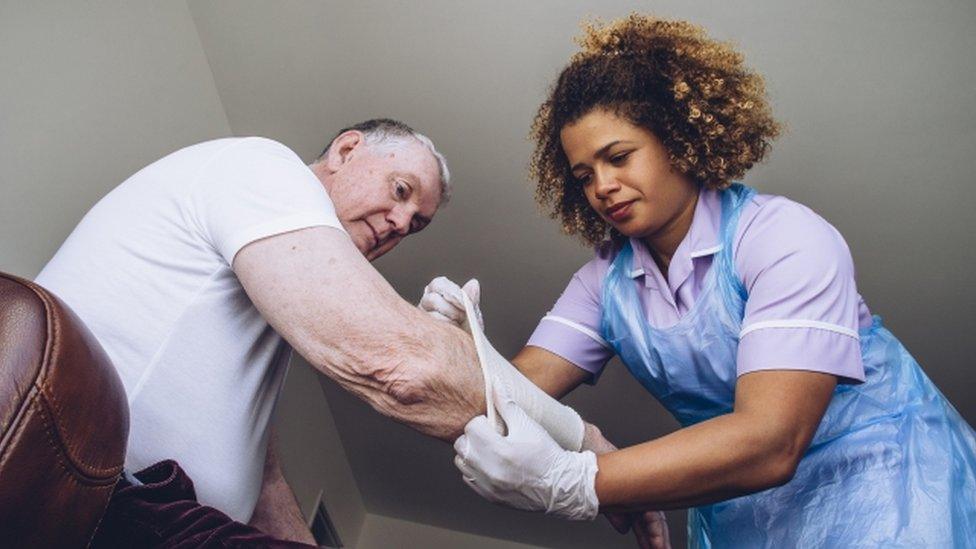National Insurance rise will hit jobs and stifle growth, FSB warns
- Published
- comments

National Insurance is paid by both employers and workers
A rise to National Insurance to pay for health and social care will hit jobs and stifle growth, the Federation of Small Businesses in Wales has warned.
Boris Johnson said the 1.25 percentage point rise would raise £12bn a year.
Ministers in Wales will receive a "union dividend" of £700m a year more to spend by 2024/25, Mr Johnson said.
He announced a cap on the cost of care in England, but it will be up to the Welsh government to decide if it wants to do something similar.
However, the Welsh government said the announcement was severely lacking in detail.
Ben Cottam, head of the Federation of Small Businesses (FSB) in Wales said: "This is the worst news at the worst time.
"Businesses are already struggling to return to profitability from the pandemic... many businesses in the medium-to-long term will want to reassess their hiring requirements."
He told BBC Radio Wales Breakfast: "This will be an inhibition on jobs so it looks and feels like an anti-jobs measure, it looks and feels like an anti-small business measure.
"Businesses understand that somehow we have to recoup the cost of supporting businesses and the cost invested because of the pandemic, but this is not the way to do it because it stifles growth."
The rise in National Insurance (NI) - a UK-wide tax on earners - will mean someone earning £30,000 a year will pay an additional £255.
The tax will begin as a 1.25 percentage point rise in National Insurance from April 2022, paid by both employers and workers, and will then become a separate tax on earned income from 2023 - calculated in the same way as National Insurance and appearing on an employee's payslip.

National Insurance will rise by 1.25 percentage points from April 2022
There are long-standing calls for reform of social care in Wales, as costs steadily increase.
The service is partially funded through the money the Welsh government receives from the UK Treasury.
However, those who receive care often have to pay a contribution, according to how much income and assets they have.
Mike Kemp, owner of College Fields Nursing Home in Barry said: "If it [the money] doesn't come to social care we'll all feel very cheated.
"We need to pay our staff better.
"Most providers really don't get enough income from local authorities and from the health board to be ale to pay their staff at the rate they want and feel staff deserve."
- Published7 September 2021

- Published7 September 2021

- Published7 September 2021
